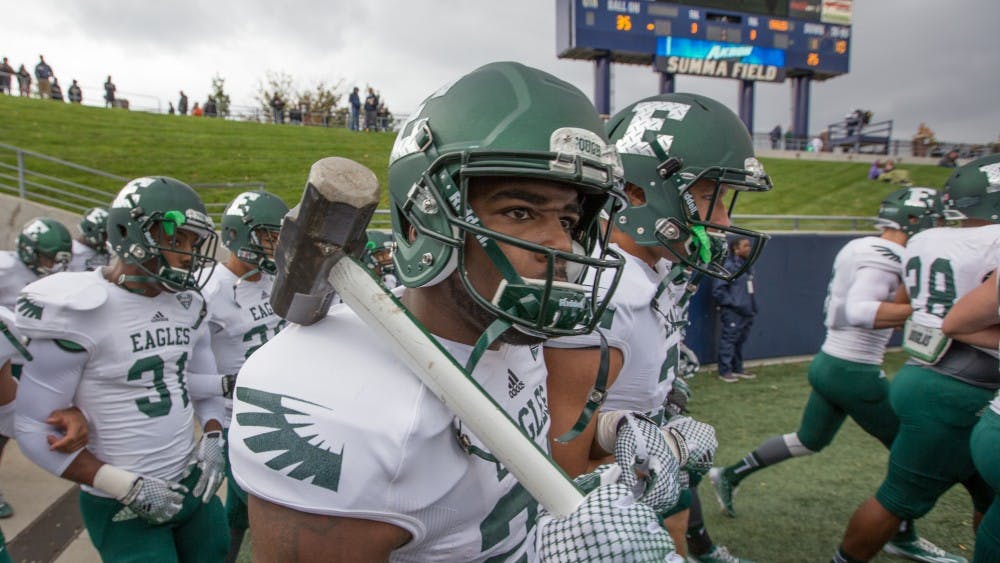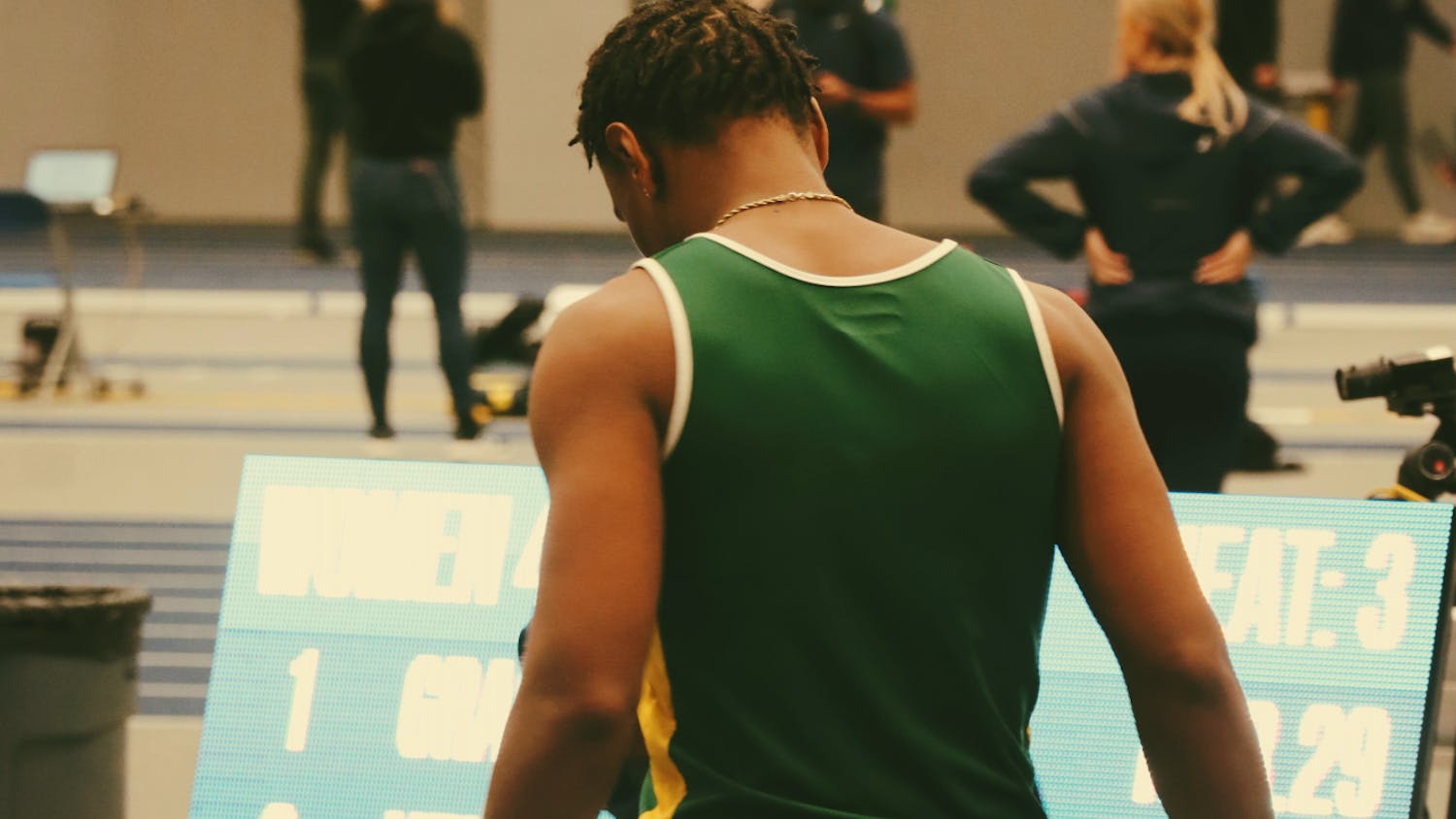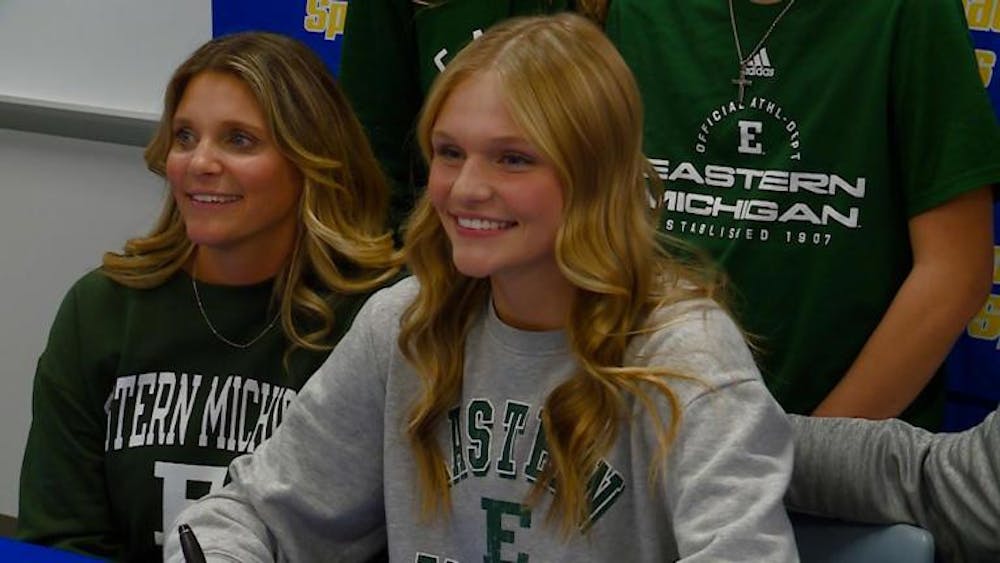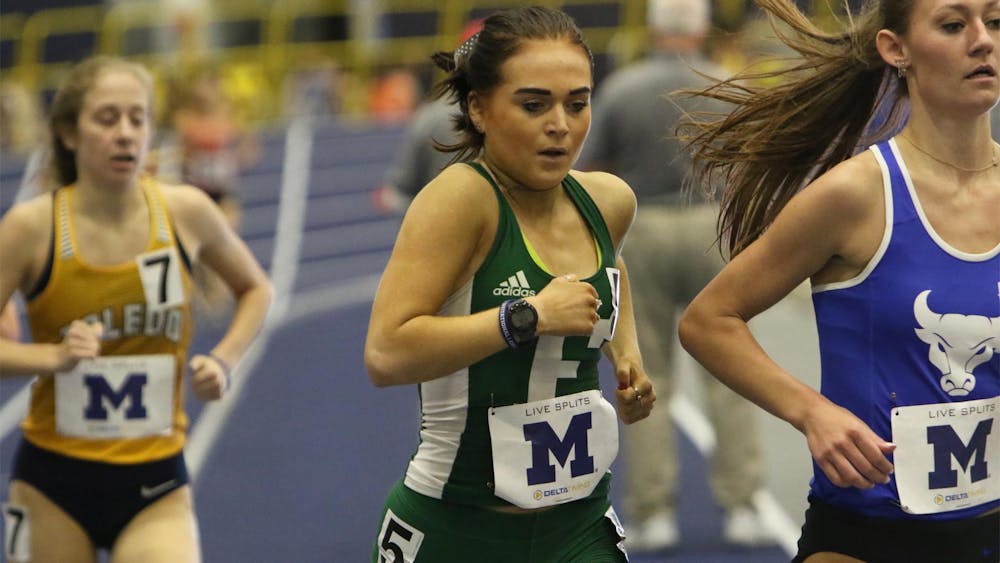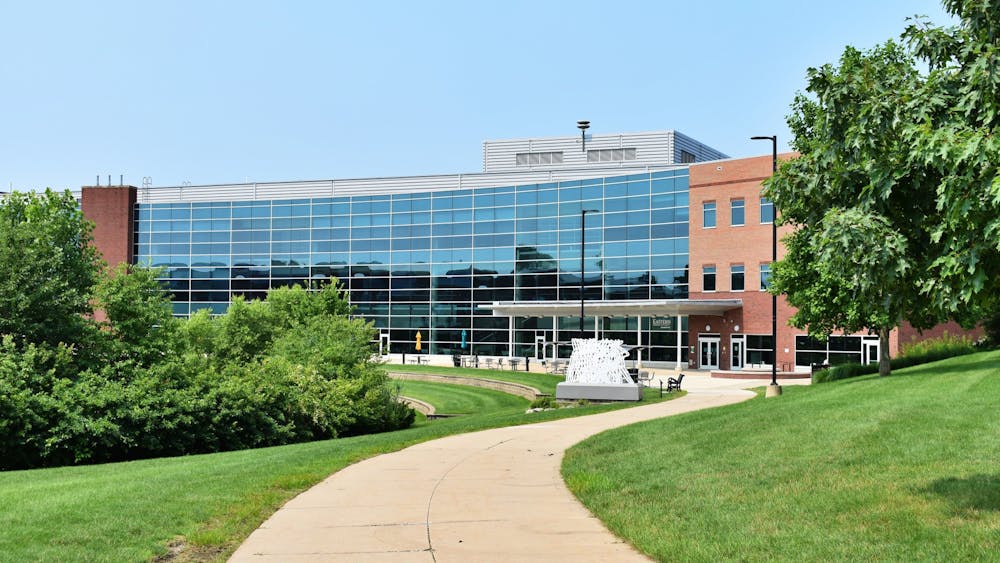Besides their fame, Oprah Winfrey, President Obama, Johnny Depp, Brad Pitt and Ben Affleck all have one thing in common: They were all members of a forensics team. One must wonder if forensics has helped these celebrities become who they are.
“When I was in high school I used to be the kid that sat at his desk and didn’t talk to anybody because I thought everyone was judging me, and after I joined the speech team there it changed my life,” said Chris Blackford, 27, a volunteer coach of Eastern Michigan University’s forensics team.
EMU has one of the best competitive forensic team in the nation. It has not only been nationally placed in the top ten since 1973 when the program started, but it is also the only team in the nation to do so.
“It’s a great feeling and a lot of hard work,” said Ashley Green, a 21-year-old member of EMU’s forensic team for four years. “We’re here every day, all day.”
Most members spend about 50-60 hours a week preparing for competitions, which take place almost every weekend all over the country.
“I’ve been to Tennessee, Georgia, Missouri, Texas, and we might go to California,” said Jon Conway, 22, a first-year volunteer coach. “A majority of our competitions are in the Midwest, and we will branch out into small groups. There are some competitions where everybody goes and everybody wants to go to, such as the one coming up at Bradley this semester in Peoria, Illinois.”
According to the EMU forensics website, when many people think about forensics they associate it with police and crime dramas like “CSI”. This is similar, but instead of seeking truth through fingerprints and blood trails, they seek truth with communication and performance.
“Forensics, by definition, is search for truth, and so through our speeches whether it be public address, persuasion, informative speaking, rhetorical criticism, academic speaking, we’re searching for the best information and the best truth to come to an understanding about a particular issue,” Green said.
Another type of genre the forensic team performs includes limited prep, or limited preparation events in which the speaker does not know the topic of their speech ahead of time and has a limited amount of time to prepare before delivering it to the judges.
There are also interpretation events that include dramatic interpretations, prose, poetry, telling a story, conveying a certain character or making an argument through literature.
“Most performances are in classrooms,” Green said. “We just get up, there is usually about six people in a round and for interpretation we’ll have a mini black binder with the literature in it and with public address and limited prep we’ll have the speeches we’ve written ourselves.”
In order to determine who wins the competition, each person performing receives a score and speaker points. The object is to get the lowest score and the highest amount of speaker points. When all competitors have finished their performance there is a rank number given out for the number of people competing. For example, if six people are competing, the numbers one to six are given out. The best person receives a one, the second-best receives a two and so on.
The object of speaker points is to get as many as you can; usually they range from 70-100. This means a perfect score would be a one and a 100.
Last weekend, Conway judged for his first time at a tournament at Ball State.
“What specific judges look for depends on the judge,” Conway said. “It could be how you deliver, it could be your argument, your literature and whether it has any real dimension or how you enjoy their performance. Whatever the judge decides, whatever they think. It’s kinda subjective to some degree, if you get up there and are confident and have a really good speech you are probably going to do better, no matter the judge then someone who has minimal confidence.
“Forensics not only teaches you to have confidence in yourself, but also confidence to express your ideas.”
EMU will be hosting a forensics competition in January, but when a team hosts it is not allowed to compete.
“It really is a group effort to host,” Green said. “It involves coming up with a theme, getting ballots together, making sure we’re hospitable by providing food and reserving classrooms and making sure the tournament runs smoothly overall.”
EMU’s team is run by the director Ray Quiel. He has help from the assistant directors, Amy Johnson and Michael Marion, along with other graduate student coaches and many volunteer coaches.
“There are some good people in forensics who share a passion for speaking and share a power through words to make a difference,” Green said.
Conway said, “One of the best parts about forensics at Eastern, and you could ask anyone on the team, is its more of a family than a team, you spend so much time together traveling to tournaments, preparing for tournaments and getting ready for tournaments that we really are close.”
“Forensics is a life-changing event, it not only teaches you how to be a professional in our society, but gives you the tools to make it as an individual,” Blackford said.
Saturday the forensics team will be competing at Oakland Community College at the Orchard Ridge campus in Farmington Hills.



